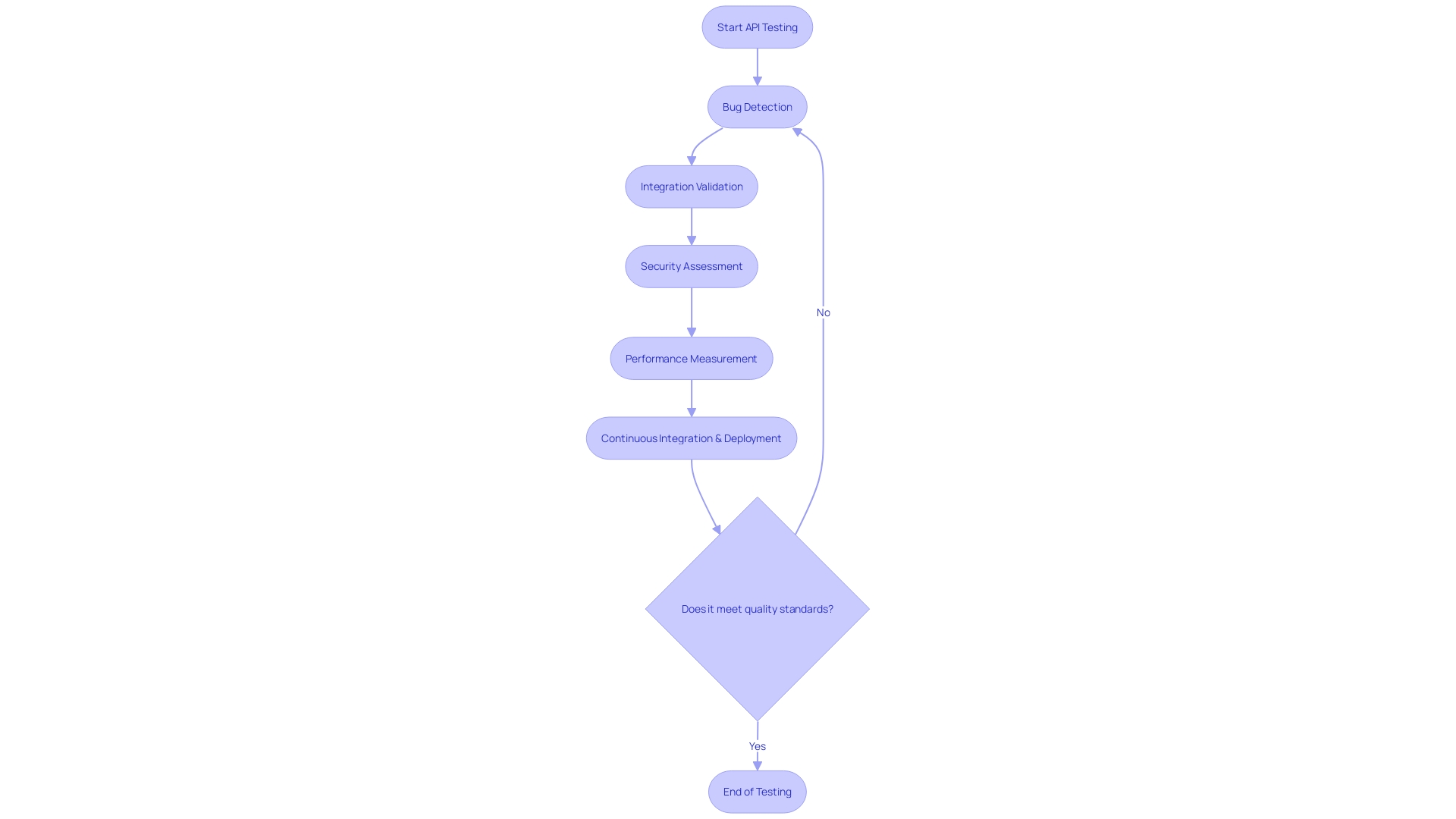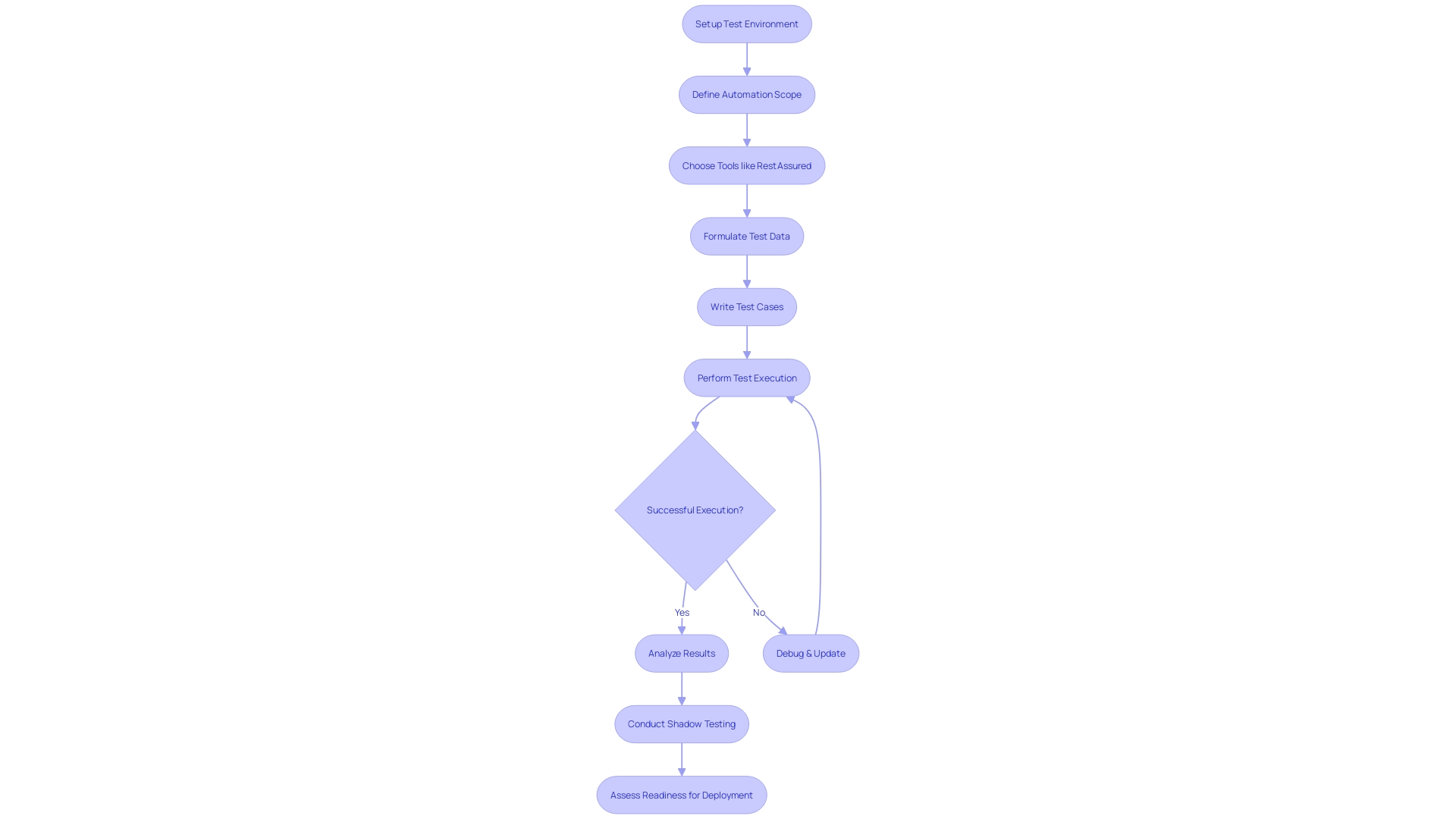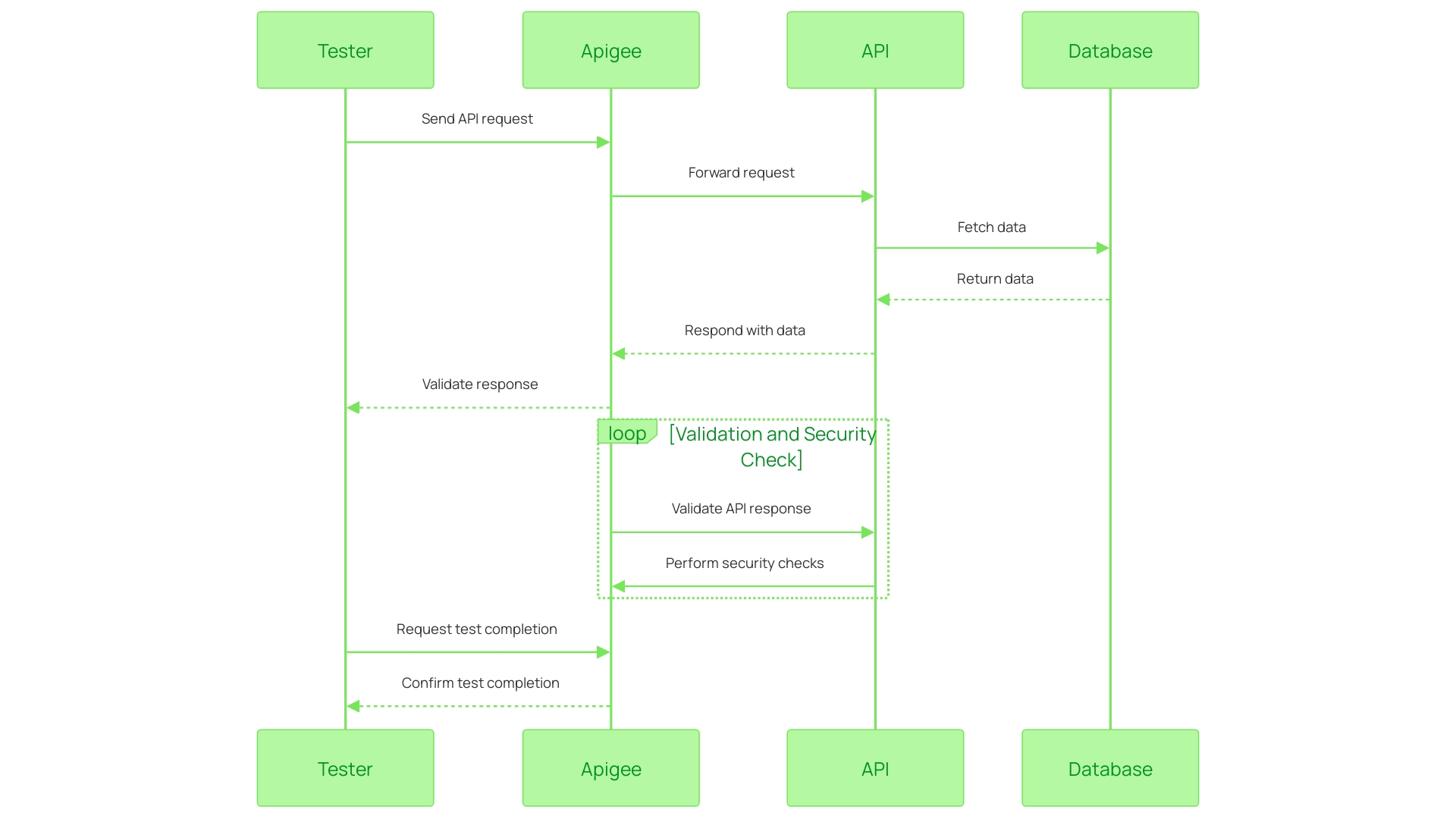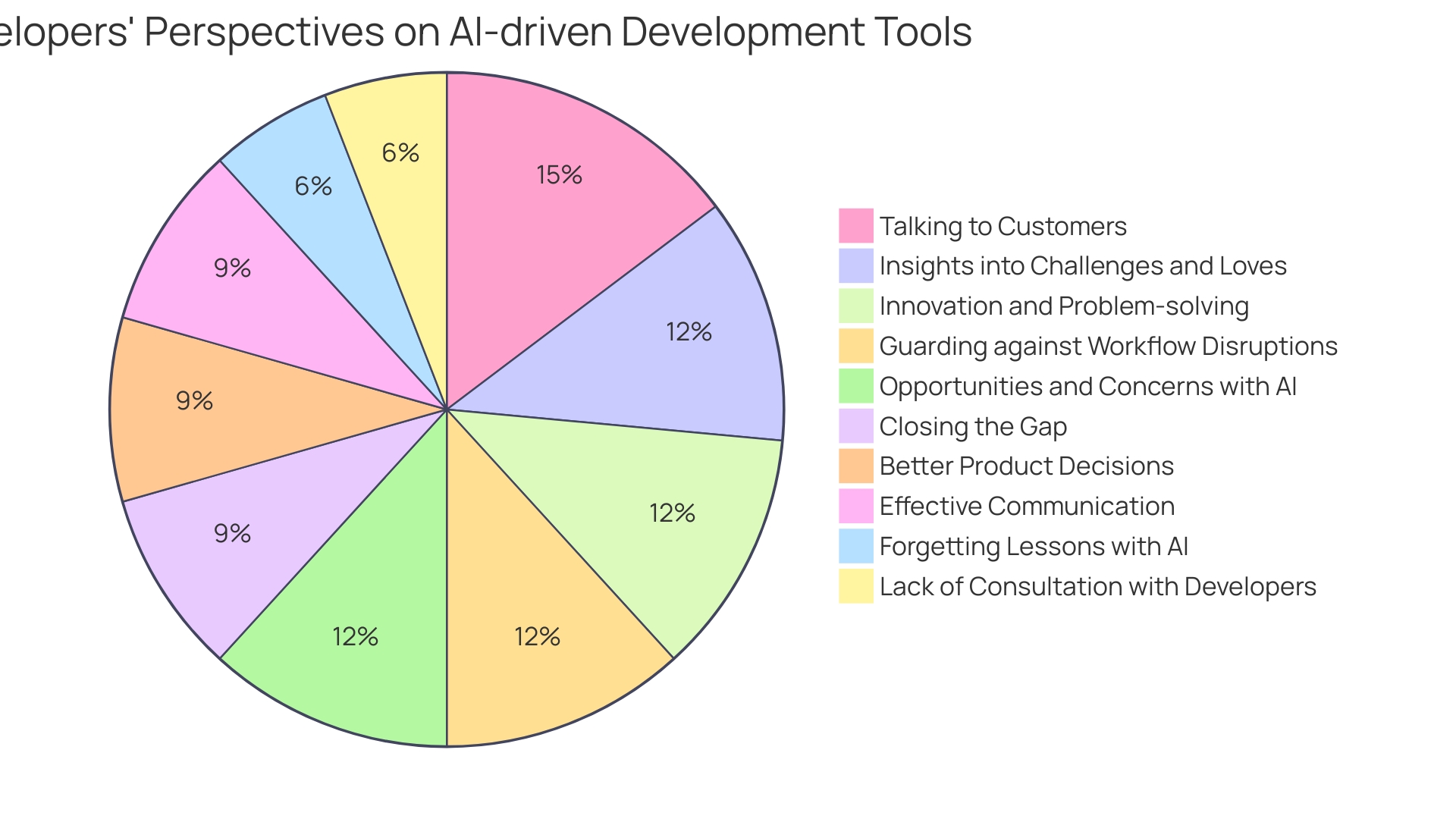Introduction
API testing is a crucial process for developers to ensure the smooth functioning and effectiveness of their Application Programming Interfaces (APIs). These APIs serve as vital channels for seamless communication between different software modules, ensuring the secure and reliable exchange of data.
In today's rapidly evolving digital landscape, the use of automated testing tools, such as Kodezi, has streamlined the API testing process, enabling QA teams to efficiently address the challenges posed by constantly evolving software demands. By investing in effective API testing, developers not only prevent issues but also enhance the overall performance of their applications, contributing to faster and higher-quality product releases. In this article, we will explore the importance of API testing, the advantages it brings, and the various tools available, including Kodezi, to achieve maximum efficiency and productivity in the testing process.
What is API Testing?
API testing stands as a pivotal process for developers, where they examine the function and efficiency of Application Programming Interfaces (APIs) they have developed. This methodical technique is the linchpin for assessing the seamless interaction between distinct software modules, verifying not only the fidelity and safety in data interchange but also the overall robustness and reliability of the API. In the dynamic realm of digital technology, APIs serve as the vital conduits enabling our applications to communicate, fetching data silently yet effectively to present the contents on your screen.
However, fostering this digital convenience requires the necessary guardianship of API testing to maintain their operational integrity and security. Regular testing cycles are essential, maintaining a vigilant stance to preempt any risks that might jeopardize the APIs' stability and security. Modern quality assurance practices recognize the significance of consistent API evaluations, now streamlined by the advent of automated testing tools.
Through these automated systems, QA teams efficiently implement API tests, addressing the concerns of rapidly evolving software demands. Far from a mere cost center, effective API testing has proven itself as a strategic investment fostering long-term savings and return on investment by guaranteeing the integrity and performance of critical software infrastructures. As such, API testing doesn't just prevent problems but enhances the application's overall performance, contributing to the speed and quality of digital product releases in today's swift-paced innovation climate.
Advantages of API Testing
API testing stands as a non-negotiable standard in modern software development, with its multifaceted benefits significantly impacting the quality and stability of digital solutions. Through early detection, bugs that could otherwise sabotage the user experience are identified with surgical precision, preventing costly overhauls.
This preemptive approach to quality ensures not just early-stage cost savings but also amplifies reliability, a non-negotiable in today's interconnected digital ecosystems where downtimes are synonymous with lost opportunities. The integration capabilities of different software components, third-party services, and databases are validated through rigorous API testing, paving the way for seamless interoperability—an indispensable facet in a landscape dominated by complex, interconnected systems.
This testing transcends functional checks; it's a vital gatekeeper for robust security, critically assessing and fortifying APIs against potential breaches and protecting sensitive user data from the prying eyes of unauthorized entities. Moreover, API testing is instrumental in refining performance by meticulously measuring response time and throughput, facilitating much-needed optimization for speed and efficiency.
In an era where fractions of a second matter, such rigorous assessment distinguishes the exceptional from the mediocre. Lastly, it's worth noting that API testing isn't just a one-time affair but an integral aspect of continuous integration and deployment. Automation in testing equates to consistent, rapid feedback on code alterations, crucial for an agile development environment focused on incremental progress and swift product iterations. This continuous quality feedback loop encapsulates the very ethos of Fordism, translated into the digital age where perfection must be scalable, and quality, non-compromised despite the high velocity of software releases.

Postman
Postman stands at the forefront of API testing utilities, offering a seamless interface that allows developers and testers to craft, execute, and oversee API interactions with efficiency. It simplifies API endeavors through collections—akin to well-organized folders—which knit interconnected API entities for streamlined tweaking, distribution, and repeated usage.
By harnessing collections, users can orchestrate their workspace with precision, reminiscent of a personal library where each book is meticulously categorized. Moreover, the tool echoes the dynamic of a conversation seeking permission, where requests are made, akin to asking, 'Can I go to Goa?'
and responses are received, signifying either consent or denial. This clear, dialogic model facilitates an intuitive understanding of APIs akin to familiar interpersonal interactions. Equipped further with features such as auto-generated code snippets and automated testing, Postman not only refines the API development process but also fosters teamwork through its collaborative features, positioning itself as an indispensable asset for API professionals.
SoapUI
Amidst the paramount importance of Application Programming Interfaces (APIs) in our digitally-driven world, the stalwart tool SoapUI emerges as a vital asset for API testing. Catering to the indispensability of regular API maintenance, SoapUI excels with its compatibility for both SOAP and RESTful APIs.
It empowers testers with the finesse to construct and execute incisive API tests effectively. With an acute understanding that APIs are the unsung heroes orchestrating the seamless communication between software applications, SoapUI's prowess extends to its robust reporting functions. These analytical capabilities not only monitor but provide in-depth insights into the APIs’ performance, facilitating adjustments in the testing cycles to fortify system stability and uphold security.
JMeter
In the digital realm, Application Programming Interfaces (APIs) are the linchpins that enable seamless interactions and operational efficacy. Beyond their pivotal role, APIs necessitate ongoing vigilance to maintain their stability and protect against vulnerabilities. This backdrop underscores the essence of API testing, a process dedicated to the thorough evaluation of these critical interfaces.
By simulating varying load levels, testers can rigorously assess an API's resilience and performance continuity under diverse scenarios. This is where a tool like JMeter comes to the fore, offering a comprehensive platform for stress testing APIs alongside its well-known application in performance testing. JMeter's user-friendly design complements its expansive testing proficiencies, making it an esteemed resource for ensuring APIs meet the meticulous demands of our interconnected digital landscape.
Swagger
Swagger is much more than a mere open-source API framework; it is a robust suite of tools designed to streamline working with RESTful APIs. Essential for modern software development, it particularly shines when it comes to crafting well-defined API documentation.
Functioning as a blueprint for developers, Swagger details available endpoints and the nature of data exchange which is paramount for interacting with a service. Its capability goes beyond documentation—it fosters interactive exploration of APIs and automates the generation of comprehensive test suites, promoting a more refined and error-free culmination of services.
Supporting a multitude of programming languages, Swagger essentially democratizes the API development process, rendering it accessible across the diverse landscape of development environments. In the evolving arena of software interfacing, where APIs serve as the fundamental conduits facilitating the fluent dialogue between disparate applications, Swagger emerges as a pivotal player, championing clarity, precision, and effortless integration.
To understand Swagger's significance, one must grasp the core concept of an API. Serving as the communication protocol between software entities, APIs dictate how components should interact, what data should be conveyed, and the manner of its transmission. These digital emissaries ensure that applications can tap into functionalities or data repositories without entangling themselves in the complexities of underlying systems. APIs are omnipresent in the web development domain, orchestrating the symphony between servers and their clientele, be they browsers or mobile applications. By embracing APIs and their comprehensive types, developers set the stage for an interconnected software ecosystem that Swagger so effectively equips them to navigate.
RestAssured
RestAssured stands as a solid Java library tailored for API testing, granting testers the fluency and ease of Java for verifying API functionalities. What sets it apart is its capacity to bridge seamless testing for both REST and SOAP protocols while excelling in handling JSON and XML.
Within the framework of Shadow Testing—a technique where alternate versions run alongside production without user impact—Rest Assured can be instrumental. It can validate new features in a shadow environment to ensure stability and performance before full-scale deployment.
Prepping for such testing involves meticulous steps: defining the automation's scope, choosing the right tools that are economical and meet requirements, and establishing a robust test framework. In this organized setting, testers prepare by setting up an environment that reflects production and by formulating relevant test data. This careful orchestration of conditions mirrors real-world scenarios to flag potential glitches, pushing risk mitigation to the forefront. As APIs act as conduits between software applications, as expressed in the concept of 'API-First Development,' tools like RestAssured are vital in ensuring these digital dialogues are faultless, adding another layer of confidence before a system goes live.

Karate DSL
Karate DSL is a powerful open-source API testing tool that combines API testing, mock server, and performance testing capabilities. It uses a simple and expressive syntax, allowing testers to write and execute API tests easily. Karate DSL also provides features like test parallelization, data-driven testing, and HTML reports.
Apigee
Apigee stands as a robust API platform that enables developers to expertly craft, secure, deploy, and scrutinize APIs at an advanced level. Its stellar toolkit is designed for API development, encompassing vital features that ensure APIs function seamlessly and perform at peak levels.
Crucial to the foundation of software construction, APIs are akin to the intricate gears of a well-oiled machine, where the quality of these interfaces significantly dictates the overall performance of software applications. Further reinforcing its commitment to excellence, Apigee embraces the core principles of API automation testing.
This systematic testing procedure relies on a tool-based approach to automatically execute API tests. Essential API functions, such as retrieving data and powering the unseen digital interactions on our screens, are subjected to rigorous validation. Utilizing Apigee's testing features affirms that APIs perform as intended, bolstering reliability and fortifying the security within the digital ecosystem.

Katalon Studio
For developers and testers navigating the complex tech landscape, Katalon Studio emerges as a reliable all-rounder for diverse testing needs, be it API, web, mobile, or desktop platforms. Distinctively, it champions a visual interface for crafting API tests without requiring code expertise, thus being accessible to a spectrum of users including those without a technical background.
Beyond its versatility, Katalon Studio excels in supporting structured testing workflows. It begins with meticulous planning, where test scope is sharply defined to establish the bounds of automation alongside the selection of tools that are both cost-effective and aligned with project requisites.
Crucial also is the preparatory phase that includes setting up a testing framework aimed at bolstering automation and ensuring meticulous configuration of the test environment. Mirroring these prep works is the systematization of test data which entails its creation, storage, and organization—a bedrock for accurate and reliable testing outcomes. A testament to the growing emphasis on such tools is reflected in the State of Developer Ecosystem 2023 report, which highlights that 77% of developers are leveraging AI functionalities like Chat GPT, indicating a shift towards automation and intelligent tool sets in software development practices.

Supertest
Supertest stands as a distinguished tool for developers focused on ensuring the performance and reliability of Node.js HTTP servers and APIs. With its seamless integration with esteemed testing frameworks like Mocha and Jest, Supertest is more than just an option - it's a strategic choice for carrying out precise API tests in JavaScript.
The robustness of Supertest lies in its fluent API, which streamlines the formulation of HTTP requests and assertions. This capability is pivotal, given that APIs play a pivotal role in the interconnected digital realm, underpinning the seamless functionality of countless applications we engage with daily.
By employing Supertest, developers harness the opportunity to meticulously gauge various performance metrics, such as an application's speed - the response time to user interactions, and scalability - the ability to sustain optimal performance despite escalating loads. Moreover, Supertest contributes to ensuring software stability over protracted usage and efficient resource utilization, which includes judicious consumption of CPU, memory, and network bandwidth.
Embodying principles of testability, Supertest endorses modularity, allowing tests to be compartmentalized into distinct units. This modularity, revered for its clarity, simplifies understanding, hence paving the way for more effective debugging and enhancement of software quality. Furthermore, the principle of independence advocated by Supertest ensures that units of code are testable in isolation, mitigating tight coupling and fostering a culture of excellence and expediency in software projects. As we embrace the ethos of constant deployment, where code transitions to production swiftly, Supertest emerges as an instrumental ally, propelling developers towards a paradigm where quality and efficiency coalesce.
Conclusion
In conclusion, API testing is crucial for developers to ensure the smooth functioning, efficiency, and security of their APIs. By investing in effective API testing, developers can prevent issues, enhance performance, and deliver high-quality applications.
Automated testing tools like Kodezi streamline the API testing process, enabling efficient handling of rapidly evolving software demands. These tools maximize efficiency and productivity, resulting in improved outcomes and reduced costs.
API testing offers numerous advantages. It supports early bug detection, ensuring a seamless user experience and cost savings.
It validates integration capabilities, ensuring seamless interoperability and robust security. It also facilitates performance optimization, enhancing speed and efficiency.
Various tools such as Postman, SoapUI, JMeter, Swagger, RestAssured, Karate DSL, Apigee, Katalon Studio, and Supertest assist developers in API testing. These tools simplify API interactions, provide robust reporting, facilitate stress testing, and automate the testing process. In summary, API testing is essential for developers to maintain reliable, secure, and performance-driven APIs. Utilizing tools like Kodezi streamlines the testing process and helps deliver high-quality applications. With effective API testing, developers can prevent issues, optimize performance, and ensure the success of their software solutions in the fast-paced digital landscape.
Frequently Asked Questions
What is API Testing?
API testing is a process where developers examine the functionality and efficiency of Application Programming Interfaces (APIs). It assesses the interaction between software modules, ensuring data integrity, security, and overall reliability of the API.
Why is API Testing important?
API testing is crucial as it helps maintain the operational integrity and security of APIs, which are essential for application communication. Regular testing prevents risks that could affect API stability and security, thus enhancing the overall performance of digital products.
What are the advantages of API Testing?
- Early Bug Detection: Identifies potential bugs early, saving costs and improving reliability. 2. Integration Validation: Ensures seamless interoperability between different software components and services. 3. Security Assessment: Fortifies APIs against breaches, protecting sensitive user data. 4. Performance Optimization: Measures response times and throughput, enhancing speed and efficiency. 5. Continuous Integration: Supports agile development by providing consistent feedback on code changes.
What tools are commonly used for API Testing?
- Postman: A user-friendly interface for crafting and executing API interactions. 2. SoapUI: Supports both SOAP and RESTful APIs, known for robust reporting and performance insights. 3. JMeter: Ideal for stress testing APIs and assessing performance under varying loads. 4. Swagger: Assists in creating API documentation and automating test suites. 5. RestAssured: A Java library for testing both REST and SOAP protocols, useful for shadow testing. 6. Karate DSL: An open-source tool that combines API testing with performance testing capabilities. 7. Apigee: A platform for crafting, securing, and scrutinizing APIs while ensuring their performance. 8. Katalon Studio: A versatile tool with a visual interface for API testing, accessible to non-coders. 9. Supertest: Focuses on performance testing for Node.js HTTP servers and APIs.
How does API Testing enhance software quality?
By ensuring that APIs function as intended and meet performance standards, API testing directly contributes to the overall quality and reliability of software applications, reducing downtime and enhancing user experience.
Is API Testing a one-time process?
No, API testing is an ongoing practice that should be integrated into continuous integration and deployment cycles, ensuring that APIs remain robust and secure as software evolves.
What is the role of automation in API Testing?
Automation streamlines the testing process, allowing for efficient execution of tests and rapid feedback, which is essential for agile development environments where speed and quality are paramount.
How does API Testing relate to software development practices?
API testing is an integral part of modern software development, enabling teams to build interconnected software ecosystems, ensure smooth communication between applications, and maintain high standards of performance and security.




